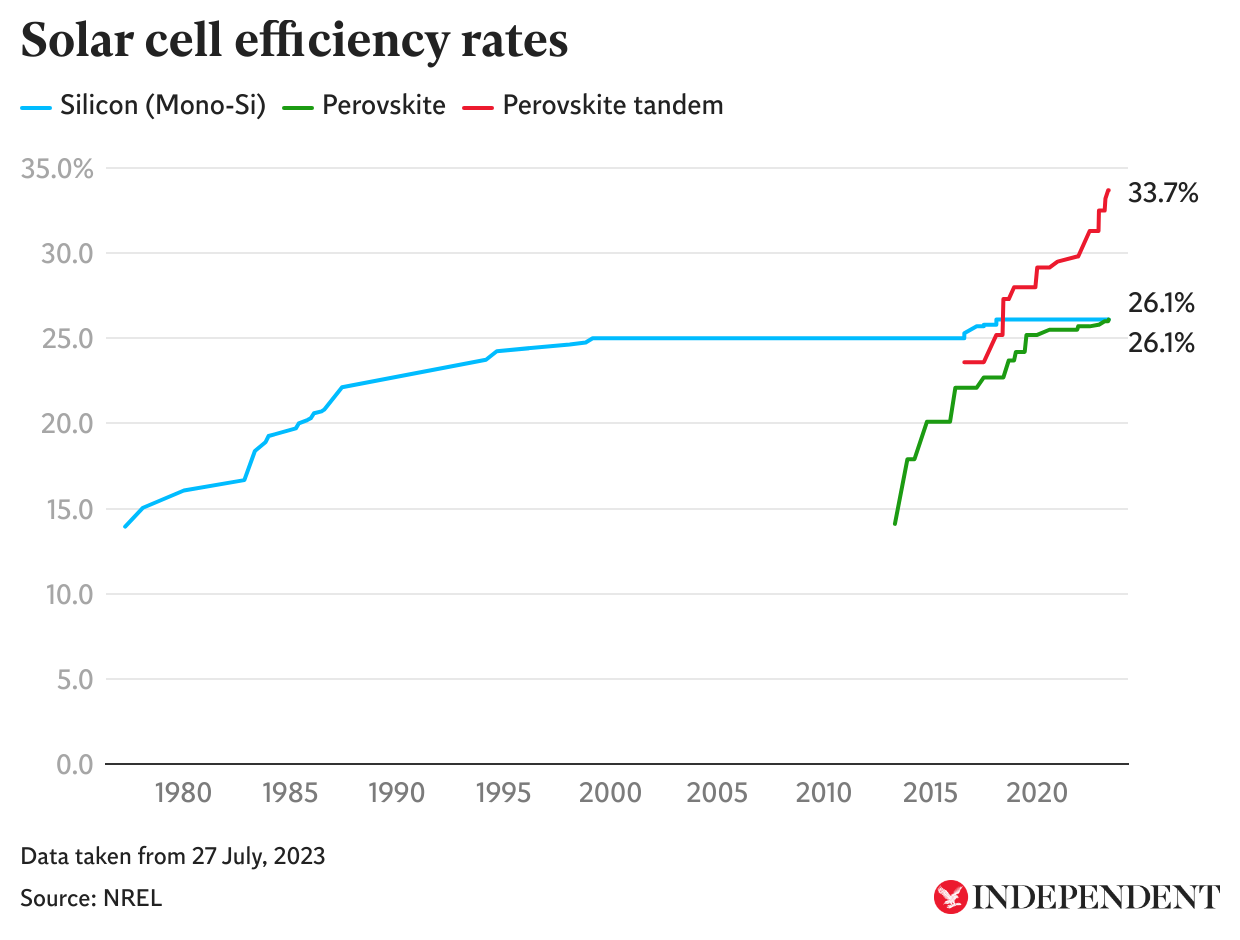The Independent's journalism is supported by our readers. When you purchase through links on our site, we may earn commission.
Solar energy set to eclipse fossil fuels as world passes ‘tipping point’, study reveals
‘The recent progress of renewables means that fossil fuel-dominated projections are no longer realistic,’ says researcher
Solar energy has reached an “irreversible tipping point” that will see it become the world’s main source of energy by 2050, according to a new study.
Researchers at the University of Exeter and University College London analysed recent technological and economic advances to determine that the transition to clean energy is not just reachable, but inevitable.
“The recent progress of renewables means that fossil fuel-dominated projections are no longer realistic,” said Femke Nijsse from the University of Exeter.
“Using three models that track positive feedbacks, we project that solar PV will dominate the global energy mix by the middle of this century.”
Barriers may still arise to hamper this positive trend, the researchers noted, including political resistance from anti-environmentalists and the lack of financing for solar power in developing countries.
“Solar energy is the most widely available energy resource on Earth, and its economic attractiveness is improving fast in a cycle of increasing investments,” the researchers wrote in a study detailing their findings.
“We find that, due to technological trajectories set in motion by past policy, a global irreversible solar tipping point may have passed where solar energy gradually comes to dominate global electricity markets, without any further climate policies.”
The study, titled ‘The momentum of the solar energy transition’, was published in the journal Nature Communications.

The latest research comes less than a month after a Berlin-based research institute calculated that fossil fuel-generated power will no longer be economically viable within the next 30 years due to the plummeting costs of solar, batteries and other renewable technologies.
The Mercator Research Institute on Global Commons and Climate Change (MCC) found that the transition to renewable energy was “cheaper than expected” and could make fossil fuels obsolete by 2050.
“This is an extremely optimistic scenario – but it illustrates that the future is open,” MCC researcher Felix Creutzig noted. “Climate science, which provides policymakers with guidance in its scenario models, must reflect technical progress as closely as possible.”
The UK saw a record-breaking year for renewable energy last year, and is on track to do the same in 2023 following the installation of new solar and wind plants.
Wind, solar, biomass and hydro power generated 40 per cent of the country’s electricity in 2022, according to figures compiled by Imperial College London, up 5 per cent from the year before.
Read more on solar panels
Join our commenting forum
Join thought-provoking conversations, follow other Independent readers and see their replies
Comments

Bookmark popover
Removed from bookmarks